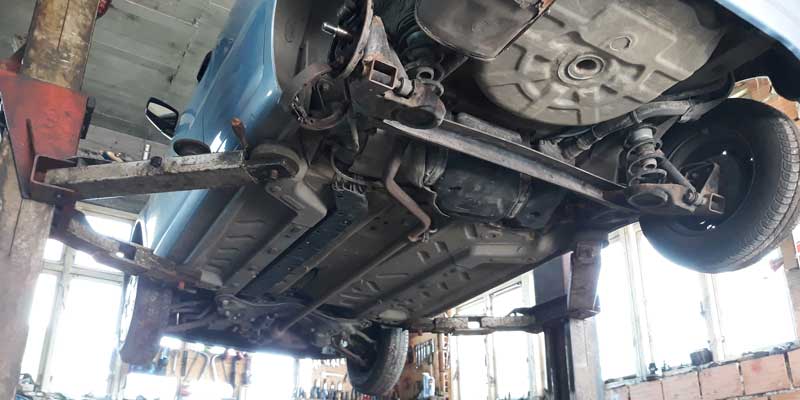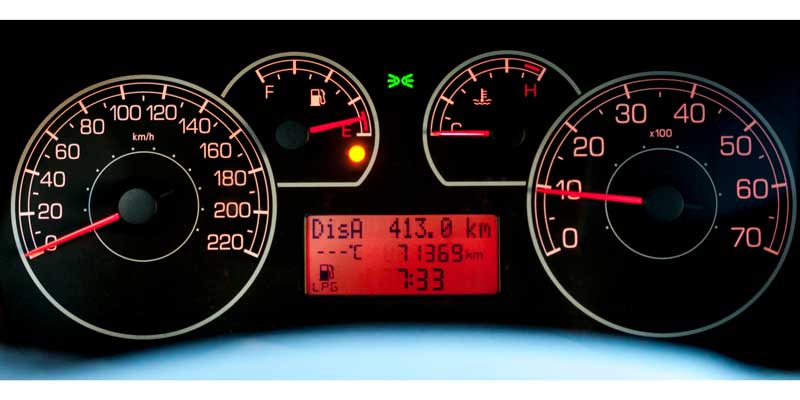One of the main advantages of purchasing a new car is having the protection of a manufacturer’s warranty and extended car warranty to cover the cost of any needed repairs for the length of the warranty program. However, your car’s warranty does not always cover repair services, especially if you find out that you’ve voided it unintentionally. Here are some common actions that void car warranties.
Let’s take a look at eight things that can void your car warranty.
- Racing and Reckless Driving
If you race or compete with your car, this voids the car’s warranty as you are driving it outside of normal use. Racing a vehicle at fast speeds puts a large amount of wear and tear on your vehicle as compared with a vehicle that only drives legally on streets. Some manufacturers may even keep records of license plates from racing events to deny future warranty claims.
- Flooding and Other Natural Disasters
Damage from a natural disaster also voids your warranty, as the car’s warranty only covers manufacturer’s defects. Some examples of natural or environmental disasters that would void your car’s warranty are earthquakes, fires, and hurricanes. This could include flooding, even when the flood waters do not reach the vehicle’s interior. Do what you can to protect your vehicle against environmental factors where possible. If you suffer damage or loss from a natural disaster, check with your auto manufacturer or dealership to see if the event voided your warranty.
- Poor Car Maintenance
It is important to keep up with your car’s recommended maintenance schedule to keep your car in excellent condition. If you fail to keep up with vehicle maintenance, such as oil changes, filter changes, and alignments, the automotive manufacturer or dealership could deny your warranty claim due to neglect. The company could argue that the issue stemmed from poor maintenance, not from the manufacturer.
To avoid this problem, make sure to keep up with all vehicle maintenance as recommended by your manufacturer (at least for as long as your warranty is valid). Routine maintenance helps keep your car operating longer and can reduce the cost of repairs by taking care of small issues early. If possible, consider having your car serviced at the dealership, so they have service records. No matter where you choose to have your vehicle serviced, keep records in the event you need to prove you maintained your vehicle according to the manufacturer’s recommended schedule.
- Custom Modifications
In the past, automotive manufacturers could deny claims to vehicles that used aftermarket parts, custom modifications, or upgrades not installed by the manufacturer. The Magnuson-Moss Warranty Act, enacted in 1975, changed this, as the law stood behind your rights as a consumer to modify your vehicle as you want to. However, if the modification or its installation damaged a part covered by the warranty, the dealer can deny the warranty claim on this basis. This is why it is important to professionally install any modifications using someone with experience and high-quality parts.
- Be Aware of Salvage Titles
A salvage title is issued after a severe accident or when a car is otherwise totaled. If the vehicle has a salvage title, it is no longer covered by the manufacturer’s warranty program. Some pre-owned vehicles have applicable warranties that transfer to a new owner. If you’re purchasing a pre-owned vehicle, it’s important that you perform a title search to ensure that you don’t accidentally buy a car with a salvage title. Some vehicles with salvage titles have been repaired and could be sold to a buyer who doesn’t know about the vehicle’s history.
- Don’t Tamper with the Odometer
Your vehicle’s odometer is an important measure of your car’s age and use. It lets you know when it’s time to schedule a service appointment to keep on top of your manufacturer’s service schedule. It also influences the price you’ll pay for a pre-owned car. Changing the odometer’s reading is fraudulent and will void your vehicle’s warranty.
- Using Unapproved Fluids
When you first buy your car, look for a list of approved fluids in the owner’s manual. If you use gas, oil, or other fluids that aren’t approved by the manufacturer, this could be grounds to void your warranty, even if the unapproved fluid is removed completely. In popular movies, sometimes characters put fluids other than gasoline in the gas tank. This would void your vehicle’s warranty, as these fluids could damage the internal components of your vehicle.
- Vehicle Misuse
A dealership or automotive manufacturer could deny a warranty claim on the basis that you have misused your vehicle. This could include racing, off-roading, hitting curbs, or any other use than what the manufacturer intended it for. Unfortunately, what constitutes misuse is up to the dealership or manufacturer to decide. Carefully review your car’s warranty program and owner’s manual to understand what counts as misuse to keep your warranty coverage. You wouldn’t want to unintentionally void your warranty by using your vehicle in a way that counts as misuse.


How to Avoid Vehicle Warranty Problems
To fully enjoy the protection of your car manufacturer’s warranty program, it’s important to not void your vehicle’s warranty. Take the time to thoroughly read through your owner’s manual and your warranty paperwork to ensure that how you’re using your vehicle is how the manufacturer intended. This will help you keep your vehicle warranty intact.


